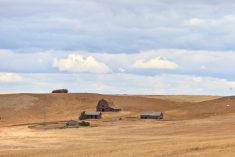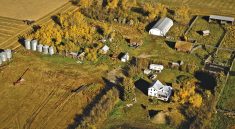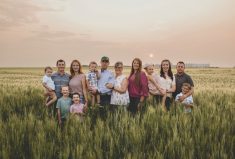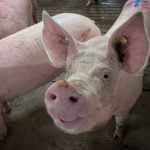It was seven or so years ago that Kurt Cole realized he needed a bigger farm.
Three of his five daughters and their families wanted to return home to farm with Cole, so the Alberta grain producer started searching for a way to raise $7 million — the price tag for some nearby land belonging to his cousin that would double the size of his operation — without being buried in debt.
Cole was able to find a solution that he honestly believes couldn’t have worked out much better.
Read Also
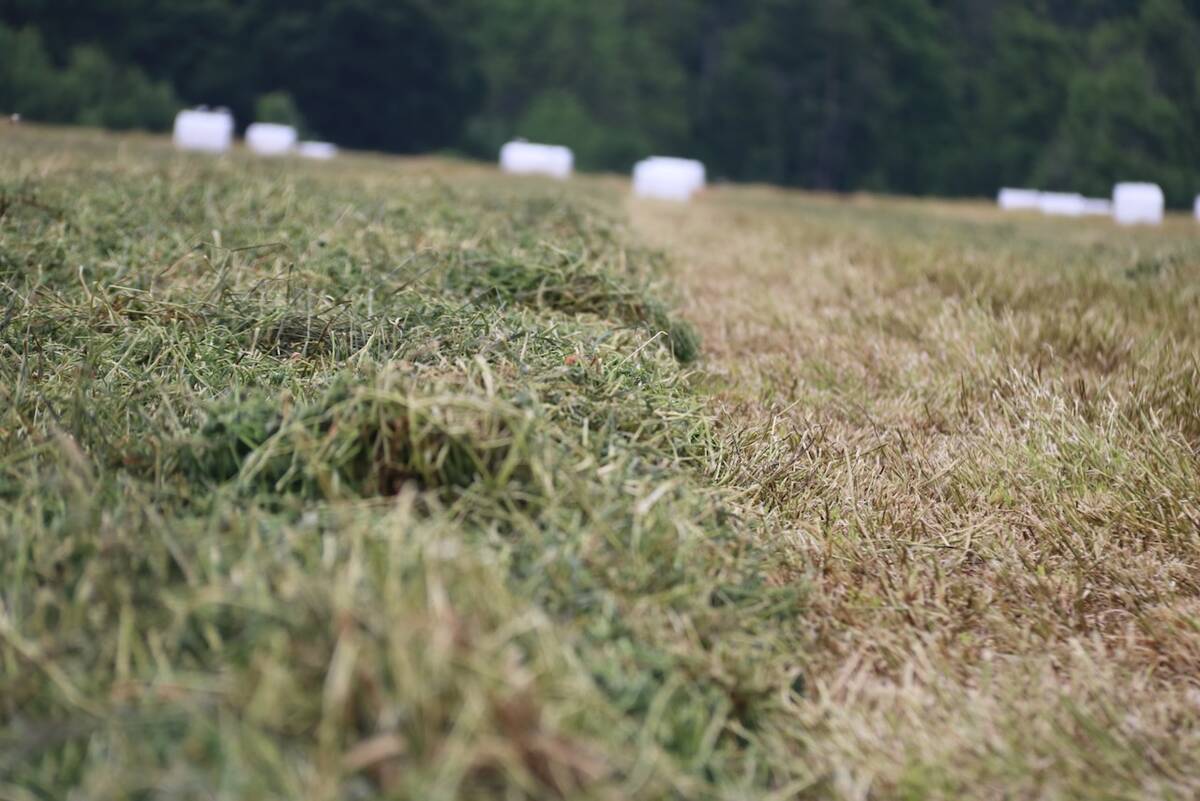
New high-performance forage training program to launch in 2026
A new Canadian Forage and Grasslands Asssociation high-performance forage program will be a resource for farmers, agronomists and others in the forage sector.
“Seeing the grandkids grow up in the place my grandfather grew up — it’s incredible,” he says.
“The fact that I had five daughters, I never really thought this was something that would materialize,” Cole adds. “I’m in succession planning and if they weren’t here we’d be doing something radically different.
“It’s a welcome surprise to be able to have family back and be able to have the lifestyle we dreamed of.”
Cole’s story has a happy ending, but you’re probably thinking — OK, how did he get there?
For Cole and his family, the answer wasn’t a lending institution, but a unique investment company called Area One Farms. The Toronto-based firm, led by CEO and founder Joelle Faulkner, manages funds from institutional and wealthy investors and only invests in farm operations — with $480 million invested to date in 25 farms in Alberta, Manitoba and northern Ontario since its inception in 2012.
“They were able to help us in the situation we needed the most help with, and that was capital. And we found we were a good fit,” says Cole, who grows canola, wheat, oats, field peas and corn for cattle feed on 8,000 acres of farm and pastureland near the town of Coronation in east-central Alberta.
Impact investment
Area One Farms is an ESG (Environment, Social and Governance) or impact investment firm, meaning, in addition to financial targets, it also strives for environmental and social improvements. Faulkner says the majority of these kinds of impact investments, particularly in developed countries, really often focus on just the environmental side.
One of Area One Farms’ objectives is helping its farm partners move toward regenerative agriculture practices that reduce a farm’s carbon footprint, but a primary goal is keeping farmland in the hands of farmers and maintaining intergenerational farming.
“We are very firmly focused on social outcomes for our farmers,” says Faulkner. “The objective is to not only benefit farmers and their families, but also their communities and even their province. Increasing rural wealth is an important part of it but so is increasing wages and full-time jobs for farm workers.”

She likens the arrangement to a joint venture where Area One invests alongside farm partners to buy and improve land, and it will also help fund the cost of purchasing or leasing new equipment, freeing up their partners to put more money into their operations.
Faulkner says the Area One Farms model reduces risk for producers who want to expand their operations by providing access to capital through stable and committed partnerships with financial investors. Each Area One investment starts with a 10-year term which, if both sides want it, can be extended in five-year increments.
Area One Farms recently completed its fourth round of fundraising and, according to Faulkner, it’s positioned to add more Canadian producers to its slate of farm partners.
Faulkner grew up on a farm herself, in a dairy region near the southern Ontario town of Ingersoll. She recalls her family had an opportunity to purchase a neighbouring farm one time but didn’t because they were reluctant to take on more bank debt and they also couldn’t find any partners to invest with them. Faulkner says that experience helped drive her decision to bring a new agricultural model to the market that enables family farms to grow without the burden of fees, rents or interest payments.
A look at her background will tell you Faulkner has the smarts to do it. She’s a Rhodes Scholar and a Fulbright Scholar, holding degrees in engineering, business and law from Western University, Oxford University and Stanford University. You’ll also see her name in such mover and shaker lists as Canada’s Top 40 under 40 in 2020 and Canada’s Top 100 Most Powerful Women: Future Leaders.
Land improvement
According to Faulkner, almost a third of Area One Farms’ investments is spent on land improvement work that adds value to the farm’s land base. In many instances, this means cleaning up farmland that fell into disuse, eventually turned into forest and was later logged for its timber value.
“Five years after it is timbered, the place just kind of looks like a mess,” says Faulkner. “We clean up both the overgrowth and the tree roots and bring it back into crop production.”
Faulkner maintains having extra money available to spend on land acquisitions and farmland improvements is a win-win for Area One and its farm partners. “More equity capital changes how you can interact in that space, changes the amount that you can clean up and, as a result, how efficiently you can do it — so it works for everybody.”
Faulkner believes another good thing about land improvement projects is a lot of it happens over the winter. This enables farm workers to be employed year-round, which provides a broader benefit to their communities.
Irrigation development is another area of investment for Faulkner’s firm. She says some projects are relatively simple, such as attaining water licences and tapping farm pivots into provincial irrigation structures, but there are other, more complicated projects that also involve building holding ponds to collect surface water.

Area One Farms also helps fund drainage tile installation projects. Like irrigation, tiling can make farmland more productive, especially in areas with high water tables, which can cause problems with flooding, saturated soils and soil salinity. Faulkner says much of this work is taking place in Ontario, where some farm partners are opting to tile fields after seeing their neighbours have success doing it.
Depending on the size of the farm and how much drainage tile is being put in, tiling work can be very costly. Faulkner maintains it’s an area where it can be hard to find financing, so Area One provides an affordable option for its farm partners.
“It’s not financing their debt because it’s an investment. (Tile drainage) works very well in our model, and we can do it at scale where it becomes even more efficient,” she says.
Income and appreciation shared
Here’s an example of how the Area One equity partnership works. Say a producer named Ed contributes $200,000 to the $1-million purchase price for a piece of property. He’ll own 20 per cent of that land and Area One the rest, but a key benefit for farm partners under the business model is they get 15 per cent of Area One’s share of any income earned by the property as well as 15 per cent of the land’s appreciation value, since they’re making the day-to-day decisions on how to best run the farm.
In this case then, Ed would receive 20 per cent of the income and land appreciation, plus 15 per cent of Area One’s 80 per cent share. This would bring Ed’s total up to 32 per cent of the total income earned and the land appreciation value.
“We get asked a lot by farmers, ‘What’s the catch?’” says Faulkner. Her answer is there isn’t any.
Faulkner says the idea behind this is when the farm partners earn this additional income and appreciation value, it increases their financial capacity to buy out Area One’s share as land prices increase. As well, it’s an added incentive for the farmer to manage their crops and also the land as well as they can, which benefits both sides.
“You’re getting a (larger) percentage of any money made, but the place still has to make money for the place to do well,” says Faulkner. “It’s like when you’re farming for yourself — you make money when you make money.”
Cole is happy with the way things have gone so far, and since his first investment with Faulkner he’s expanded the farm operation even further through additional land purchases with Area One.
Cole considers Faulkner a great partner who “believes in us as much as we believe in what we’re doing.” But he’s quick to point out the Area One Farms approach may not be for everyone because every partnership by nature has its challenges.
“You need to be the type of person who can work with a partner,” Cole says. “It’s not something that’s easy (and) it’s not for everybody, and Joelle will tell you that, too. There has to be that trust you have with each other.
“It takes time and work and energy to work with a partner. You have to be on the same page, and we clicked with Joelle.”
Faulkner agrees. Entering into “real relationships” with farmers, she says, is always Area One’s objective but it can be tricky.
“There’s no business where having a partner is easy because you need really good communication, you need a really good approach and you need to make decisions that suit everybody’s interests. You need to be aligned on all of those things,” says Faulkner.
“We’ve got to make sure we like you and you like us, and that we work well together because there’s a lot of decisions on a farm,” she adds. “Managing those relationships, like any other relationship, takes a lot of time and expertise.”
Both sides will tell you when a successful partnership is forged between families like the Cole clan and Area One Farms, it’s worth the effort.
“The big piece here is I actually think we can do better together. I think if the farmer does better, so will investors. That means the better the outcomes we can get, the better the investment does, and part of that is because of these added value things like if you can clean up land or do a little better with marketing the crop,” says Faulkner.
“I like that. I don’t think that investors should own land forever. I don’t think that’s a good thing for communities, so I think it’s really important to be able to find a new model.”
Build a mentorship
To help them succeed, Area One Farms offers its farmers a network of experts and fellow farm partners who can share expertise and advice on things like getting a good price for grain, which tractor to buy and best practices for regenerative agriculture.
Building mentorship into the program is something that’s been “super successful,” says Area One CEO, Joelle Faulkner.
“We might have farmers who aren’t as good at risk management, which we think is one of the biggest areas right now for anybody just because markets are so volatile, and so we pair them with another partner who is really strong at risk management,” she says.
“It’s worked exceptionally well. We’ve done three where we have younger guys getting coached by an older farmer, and in all three cases it’s been extremely valuable.”




